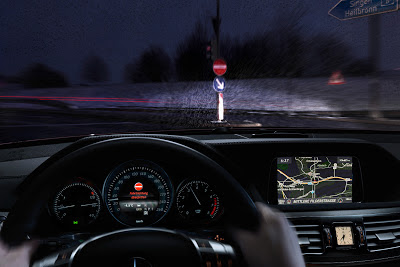 |
| 2014 Mercedes-Benz S-Class interior. Photo courtesy Daimler |
Have you seen the photos of the exterior of the new Mercedes-Benz S-Class Exterior? Mercedes has been putting out some great designs lately and the new S-Class is no exception. As can be expected with the flagship sedan, the S-Class delivers a plethora of creature comforts and snazzy new technology that will keep everyone who drives or rides in the car satisfied in just about every way imaginable.
Mercedes is calling the new S-Class "The Essence of Luxury" as part of its marketing campaign. All I know is I wouldn't mind spending an afternoon rolling around in one, even being driven around by some guy named Alfred or something like that. The car's seats will massage and warm you and they are not just ventilated but also feature a reverse ventilation feature which draws in cool air in the car's cabin to cool off hot seats. And buyers get five different choices for backseats, including an Executive seat that can recline back as much as 43.5 degrees!
The 2014 S-Class will also come with an optional perfuming feature that allows the driver or passengers the ability to release a perfume into the car's cabin to cover up unpleasant smells. Apparently the perfuming system's controls allows you to change the perfume's intensity for those extra bad smells.
What if the passengers want to all watch different things on the car's entertainment system? Mercedes has thought of that quandary and has outfitted the S-Class with the ability to stream different entertainment features to each of the DVD screens. So you can watch The Hangover while the other backseat passenger goes shoe shopping while you're stuck in rush hour traffic. Well done, Mercedes, well done...






